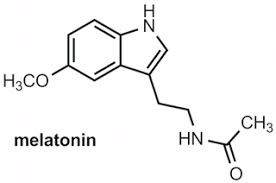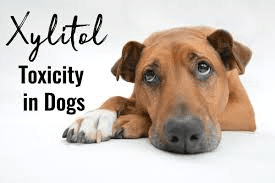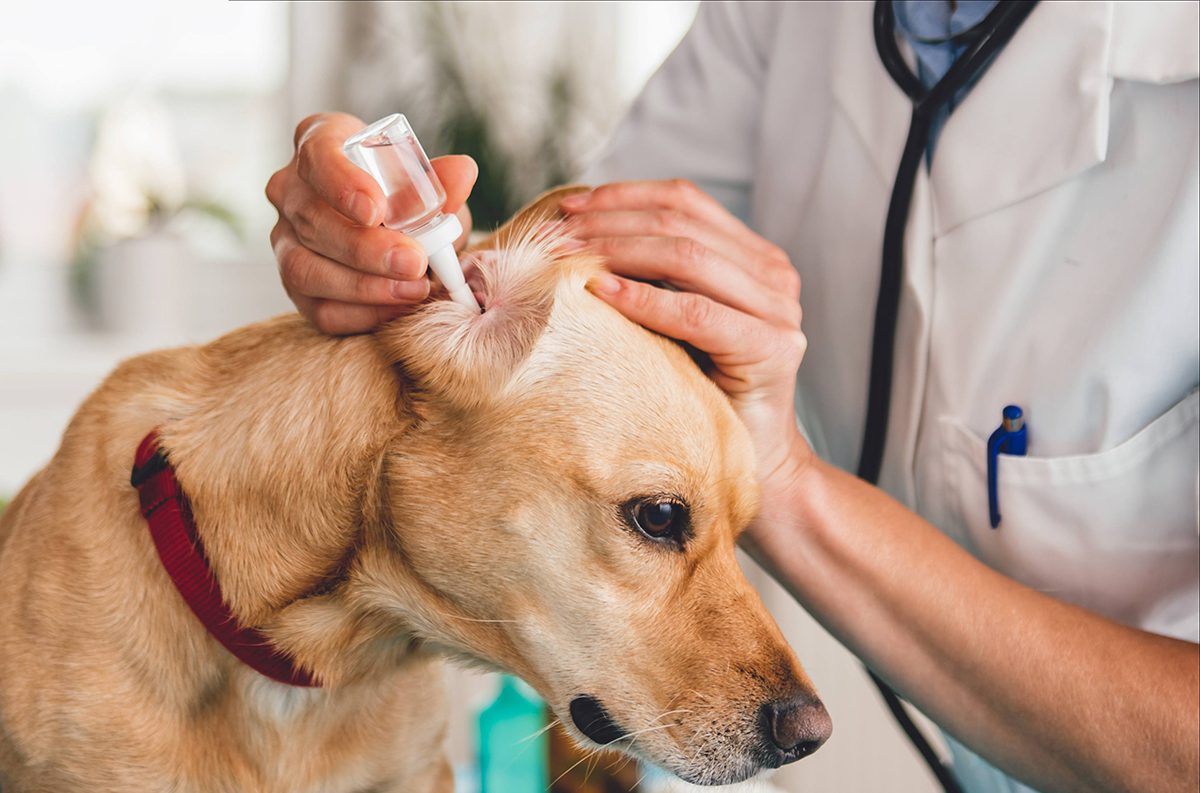What is Melatonin
Melatonin is a very important naturally occurring hormone that controls our sleep schedule. So, supplementing the diet with melatonin has become popular to help with sleep disorders.
Melatonin is a hormone primarily secreted by a tiny pea-shaped pineal gland which is found just above the middle of the brain. The pineal gland secretes melatonin in response to darkness. So, it is sometimes called the hormone of darkness.
Except for this gland, various places in the body also produce and secrete this hormone.
Melatonin also comes from the:
- Salivary glands
- Oesophagus
- Stomach lining
- Intestinal lining
Except for strengthening the sleeping cycle, research suggests that melatonin can also prevent a wide range of disease and also slow down the ageing process.
Melatonin is a hormone for energy which is found both humans and animals. It helps to protect the powerhouse of the cell, the “mitochondria”.
Normally there is more melatonin in the body at night as it is highly reactive to darkness. As the sun goes down, its levels start to go up in the evening. Its secretion is deactivated in the morning when the light of the sun is everywhere.
There are two factors which decide how much quantity of melatonin your body makes in a single day; one is the amount of light which you get each day and another one is your body clock (action and reaction). Secretion of melatonin will lessen to some extent or even block if the darkness in the night is improper.
Its natural occurrence is a biological process in every human and dog. Unless your dog’s melatonin is extremely depleted, its body will produce it itself. Normally its amount of one-night secretion is enough to regulate the timing of your dog’s circadian rhythms (24-hour internal clock) and proper sleep.
A melatonin deficiency can deplete the immune system and also increase overall inflammation in the body. Your dog becomes more vulnerable to chronic disease due to these problems. So, it is very vital to keep going on your dog’s natural melatonin levels.
Melatonin Depletion Factors
Life has become very toxic for us and in turn for our dogs in our quest to fulfil our materialistic needs. These man-made gadgets and chemicals are hard to avoid. They cause melatonin depletion in their body to some extent. So, try to lessen the use of these unavoidable factors. These factors cannot be ignored to maintain the balance of melatonin in the body. Natural melatonin which is created by their body is the best. You can get the maximum benefit from naturally occurring melatonin in spite of synthetic supplements. Synthetic melatonin supplements (n-acetyle-5-methoxytryptamine) are helpful for the urgent needs of melatonin when their body is not capable to produce enough melatonin. So try to do your best to nourish their body by keeping good and healthy habits. Synthetic supplements are not assimilated easily in our body. The body takes time to absorb them.
1. Glyphosate
It is a herbicide known as round up. This harms the body in many ways, one of them depletes the melatonin. It also interferes with gut bacteria which is responsible to make the amino acid tryptophan. Melatonin and serotonin are made up of amino acid tryptophan. Both these hormones are mood-regulating hormone.
Organic food can help minimize your dog’s exposure to glyphosate. All-time avoid these pesticides like roundup.
2. EMF-EMR
It is another type of man-made environmental toxicity. All type of mobile phones, computers, laptops and electrical appliances etc are the sources of magnetic radiation which cause melatonin depletion. So try to keep their use in limits and turn off wi-fi router in the night or when you leave your house. Put all your mobiles outside the room where you and your dog sleep.
3. Electric light
Electric lighting at night can delay the start of melatonin production. So, dimming the lights in the evening (especially LED and CFL bulbs) will have less effect on melatonin production.
4. Encourage Natural Melatonin
Healthy lifestyle habits support the body’s production of melatonin and that starts with food. Seasonal fruits and vegetables are loaded with different vitamins and minerals. Make all type of these veggies available to your furry friend as much as possible to you.
Veggies like asparagus, broccoli and Brussels sprouts are rich in healthy elements.
Calcium-rich foods like raw meaty bones, sardines and dark green leafy vegetables are also helpful in making melatonin.
Go for organic food which helps to reduce possibilities of exposure of insecticide and pesticide to you and in turn your dog.
Benefits Of Melatonin For Dogs
There are many reasons for which you can medicate your dog with melatonin because it has a plethora of uses in dogs.
Many vets have given successful treatment of melatonin supplements to dogs who have different health problems, allergies and infection as well. Most of the time, melatonin suppresses some of the symptoms associated with these disorders while leaving very minor negative effects. So, read on to get more information about these disorders and decide whether or not your dog needs melatonin supplements.
1. Anxiety
Melatonin has a very sedative-like sensation on a stressed out and agitated dog. An estimated 20 – 40% of dogs have ailments issues of separation anxiety.
a) Separation Anxiety
It is a condition where a dog exhibits distress and behavioural problems when it gets separated from its owner. Dogs can be distressed when staying with a pet sitter or non-family members while you are away. It may also lead to an unhealthy coping mechanism.
An action plan of the right amount of dosage of melatonin can work wonders to lower the chances of behavioural problems.
b) Situation Anxiety
This is also known as loud noise phobia; when a dog experiences fear of car driving, thunderstorm, fireworks and even vacuuming sound. If this is your dog, sporadic melatonin supplements is a good option for treatment before the onset of noise or even during it.
c) Vet Visit
Dogs can be very scared of vet visits. Melatonin can help to mellow your dog out for this situation and this treatment makes you and your puppy happier. Your furry friend becomes very calm and relaxed.
2. Depression
Melatonin is a naturally occurring neurohormone which may reduce any kind of depression. Depression is a persisting condition of anxiety. If your dog has an ongoing condition of this disorder, melatonin supplements may work to give your dog’s body signal to prepare for sleep. So, melatonin maybe something beneficial for your dog’s day to day life.
3. Insomnia
Since our body produces melatonin which helps us to sleep and be helpful to work again insomnia or irregular sleeping patterns.
Insomnia is the inability to fall asleep or sleep soundly. Generally, we hear that humans are the only ones who can suffer from sleeping sickness. But no, dogs also face this problem with disturbed periods of sleep. As a result, they become lethargic and less energetic throughout the day.
Some pet parents use melatonin to dogs to help them sleep at night, especially older dogs. Adult dogs might have disturbed sleep patterns. These dog owners have got very good results by giving an appropriate dosage of melatonin to control their dog’s unrestful sleep.
4. Cushing disease
Cortisol is a hormone which helps to regulate stress response and the immune system. When a dog’s body produces an excessive amount of cortisol which can lead to issues such as frequent urination, low energy and muscle weakness and also various skin conditions.
Cushing disease is a curable disease. It is an unbalanced hormonal problem. Melatonin can help ease the symptoms by its soothing properties.
Sometimes a tumour is developed on adrenal or pituitary gland with excessive secretion of this cortisol. This tumour can be dissolved by proper melatonin intake which blocks the uptake of an excess of cortisol.
As earlier is mentioned its treatment is very natural and all timeless harmful for health issues in dogs.
5. Alopecia (Loss of hair)
This is a problem of hair loss in patches. These patches of hair are found on their lower backside near the tail. ‘Seasonal flank alopecia’ is another name of this loss of hair as it happens more in the winter season.
This phenomenon is not accompanied by other skin disorders. Origin and causes of this disorder are still mysterious. However, it has been seen in some cases dog who are treated with melatonin, their hair grows back because melatonin may work on the hair follicles and enhance the regulation of secretion of some hormones, such as melanocyte-stimulating hormone or prolactin. This melanocyte is found in the matrix of the hair follicles. So, there is inconclusive evidence that it would not grow back without melatonin. Dog owners get a satisfactory feeling that they are actively trying to combat the alopecia.
6. Cognitive dysfunction
Cognitive dysfunction in dogs is very similar to Alzheimer’s in humans and related to abnormal sleeping problems. It makes it difficult for the dog to sleep.
7. Toxics in Vital Organs
Melatonin’s antioxidant effects help protect the liver, kidney, brain and lungs. It can reduce inflammation, prevent cell death and support the health of the mitochondria. This reaction can help prevent the build-up of toxins.
Melatonin Dosage
It is imperative to have proper knowledge about all supplements, which is a better supplement for your dog, how much intake should be given at what time. You should also have knowledge to administer them.
You should talk to your vet and discuss above all queries. You will need to watch out the list of additional ingredients on the label of melatonin supplements. You should avoid to buy fillers and also xylitol, an artificial sweetener containing supplements. Xylitol is known to be toxic to dogs. Sometimes serotonin may be added to supplements. Serotonin cannot be given as a supplement form. Take care and do safe buying without any additional components then it becomes safer and more reliable for your pet.
The proper dosage of melatonin and specific brand as far as you choose or use must be prescribed by your vet.
Dog weight is considering a determining factor to take the dosage:
A general rule of thumb is that:
- For canines weighing under 10 pounds intake should be 1mg.
- For canines weighing between 10 to 25 pounds intake should be 1.5mg.
- For canines weighing between 25 and 100 pounds intake should be upto 3 mg.
- For canines weighing over 100 pounds intake should be up to 6 mg.
Other pre-existing conditions are also responsible to determine dosage. So, you should discuss all previous and present health issues with your vet. So that he will administer the right action plan to introduce the melatonin.
- In the starting of medication, melatonin should be given gradually and later increase the dosage as required.
- No matter the size of the dosage, never give the dosage more than 3 times a day. If you’re giving once a day, give melatonin in the evening.
Different forms are available in the market like liquids, powder, capsule, tablets and also in chew gum form. You can give anyone type according to you and your dog’s comforts.
This supplement is effective within 15 -20 minutes after the dog takes it and the effect of this supplement will last for 8 hours. So, dog parents give melatonin to their soft paws before bedtime to sleep throughout the night comfortably.
These supplements should not be given with dog food for some medical reasons. So, to get the best of supplements then you should put a tablet or capsule inside a teaspoon full of peanut butter or yoghurt. But if you have powder or liquid form of supplement, mix it in a small bowl of water or any other treat to your dog. Make sure, this water or treat should be consumed in one time.
Side Effects of Melatonin
For most dogs, the side effects of melatonin supplements are very insignificant and there is a very short list of active ingredients. That is why it is the first choice of vets and dog parents. They prefer it over other sleep aids such as tranquillizers.
Sometimes you may notice dizziness in your dog or an increase in itchiness or stomach upset when you introduce dosage of the supplements. These are simple and later will heal up as the time passes along the medication is continued, they recover.
It is very unlikely to see more severe effects on dogs. These may be
- Cramping
- Acceleration of heartbeat that is also known as tachycardia
- Confusion
- Fertility changes
For staying away from these drastic results, first of all, start your medication by giving it once in a day gradually and small dosage. You should keep a close eye on the visible sign of changes in health.
Over the span a few days, if you find any side effects till now. Then take advice to your vet before to continue the treatment.
Don’t Give Melatonin If…
It is well known that melatonin is very unlikely to cause serious side effects. Still, it can be harmful to many dogs who have preexisting medical issues. These dogs are on high risk. So, take precautions to consume melatonin. Details of some type of ailments are given below to know better use of this supplement.
1. Diabetic dogs
Melatonin may cause secretion of insulin resistance in a diabetic animal.
2. Dogs under 12 weeks
Your vet always advises that all melatonin supplements should be given to dogs above the age of 12 weeks.
3. Dogs with Cushing’s disease
Melatonin in a dog with Cushing’s disease is very controversial. Dogs get relief from the increased stress of heightened adrenal gland by taking the proper dosage of melatonin. It is also a gentle alternative to traditional medication. However, it has still not been tested whether the use of melatonin overtime is harmful to the adrenal gland or not.
4. Pregnant and lactating dogs
There is no doubt that dogs who are issuing a baby or lactating should not be given melatonin because it may pose risk to both her and her puppies.
Ways To Give Melatonin
- Melatonin Treat: these are probably best for as needed supplements. All-time eating makes it unhealthy to your pup.
- Tablets and capsule: these might be a good option for a dog who takes melatonin daily.
- Drops and chewable: if your dog is picky about taste. Then there might work wonders.
- Pills: these would be the best way for more frequent doses. You might give an addition of these pills to wet dog food to help your dog. it will help your dog to take melatonin more easily.
There’s additionally a homoeopathic type of melatonin that can help with sleep deprivation and different issues. Once more, inquire as to whether you’d prefer to attempt this.
Drugs Which Are Hinder Melatonin:
The wellbeing of long haul use isn’t clear, so give melatonin for momentary utilize as it were. A few medications are restricted alongside the medicine of melatonin. A couple of medications are given below:
- Anticoagulants and anti-platelet drugs
- Anti-convulsant
- Immune suppressants
Conclusion
Melatonin has a very safe track record. I have not even given the whole details in this article But there’s no doubt that melatonin is our the biggest multitasking biochemical.
Table of Contents







